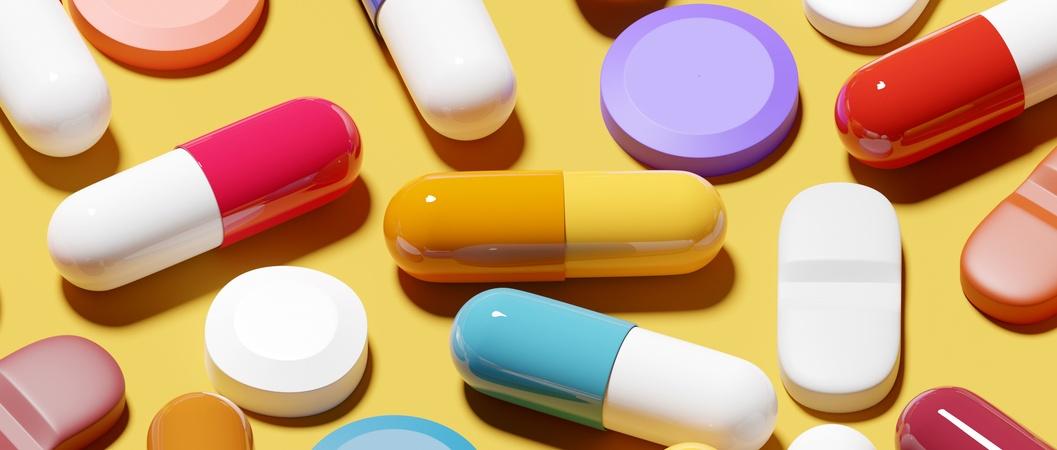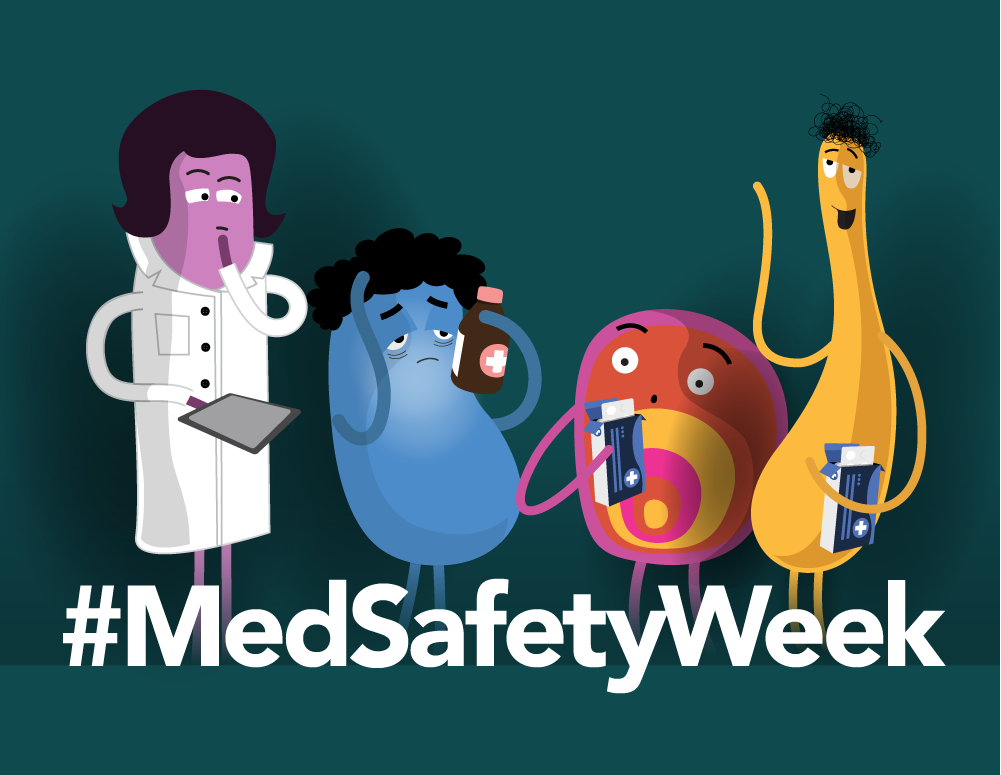
Making sure your medicine is safe at home
Revisado por el Dr Krishna Vakharia, MRCGPÚltima actualización por Victoria RawÚltima actualización 25 oct 2024
- DescargarDescargar
- Compartir
If you've ever rummaged through the back of your medicine cabinet for painkillers, you may find half-finished packs of tablets you took for a bad back some time ago, or a bottle medicine you opened a few weeks back. For #MedSafetyWeek we have a look at what you need to know about making sure your medications are safe and effective to take.
En este artículo:
La #MedSafetyWeek es una campaña anual organizada por la Agencia de Medicamentos y Productos Sanitarios (MHRA). Esta campaña le anima a notificar cualquier sospecha de efecto secundario de un medicamento, cualquier incidente relacionado con un producto sanitario o si cree que un producto no funciona según lo previsto. El Programa de Tarjeta Amarilla de la MHRA ayuda a detectar y resolver posibles problemas de seguridad de los medicamentos y productos sanitarios.
#MedSafetyWeek 2024 (4-10 de noviembre)

Seguir leyendo
What is an expiry date?
The expiry date of a medicine is the latest date that the manufacturer guarantees that the medicine will be as effective - and as safe - as when it was issued. It's a legal requirement for all medicines in the UK to have an expiry date.
Manufacturers tend to pick arbitrary expiry dates which are one or two years after the manufacture of a batch of medicines. They check them on that date to ensure the medicine is stable and works at the dose it's prescribed.
Sealed packaging
Whether or not the package is adequately sealed can change how long it stays safe for. Light, variations in temperature and moisture can affect the stability of a medicine. That's why your medicine cabinet is a fairly good place for many products, because it's dark and does not usually have big temperature fluctuations.
Many medicines come in foil blister packs, which keep moisture and light out. The expiry date guarantees that as long as the blister isn't opened, they will still be effective up to that time.
However, if the packaging that surrounds the medicine - as opposed to the cardboard box it is in - is opened, that expiry date cannot be guaranteed. Likewise, tablets in bottles can never be guaranteed past their expiry date.
Seguir leyendo
Temperature of the medicine
Another key variable is temperature. Some medicines - usually non-tablet forms - need to be kept in the fridge. If you leave them out by mistake, they may be less safe or less effective even before their expiry date is reached.
Selección de pacientes Información sobre medicamentos

Tratamiento y medicación
The dangers of fake drugs
When you buy from your local pharmacy or receive your prescription, you know that you're getting a medicine that has been rigorously tested and found to be safe and beneficial for your condition. However, when you buy from some online retailers or from an unlicensed supplier, there's no guarantee that what you're buying will be real.
por Milly Evans

Tratamiento y medicación
Relajantes musculares
Muscle relaxants are medicines that help the muscles to relax, which may also reduce pain and discomfort. Muscle spasms and tightness may also follow long-term injuries to the head or back. Muscle spasm can also occur as part of a more short-term condition or injury, such as low back pain or whiplash.
por el Dr. Doug McKechnie, MRCGP
How expiry dates affect other types of medicines
Any medicine that contains preservatives - eye drops are a common example - may not be safe once it has passed its expiry date. That's because the preservatives are added to avoid harmful bacteria growing in the liquid - which can cause damage to your body, especially in sensitive areas like eyes.
Sometimes, a shortage of supply means the NHS and national drug safety agencies need to check and see whether a medicine is still safe. Importantly, liquids may have two dates - an expiry date if unopened, and a shorter time-frame for use once opened - take notice of both.
Seguir leyendo
What to do with expired medicines
If you have unused medicine that has expired, speak to your pharmacist. Your pharmacist cannot re-issue medicines to other people, even if the packet is unopened, for safety reasons. However, they can often dispose of it safely for you.
If you have any one of a range of long-term conditions such as high blood pressure, raised cholesterol, diabetes, asthma, chronic kidney disease or heart disease, you may be taking several regular medicines. Taking these medicines exactly as prescribed means you'll get maximum benefit and protection from them. And taking steps to manage and organise your medicines properly will make this a lot easier.
Although they aren't strictly medicines, sun creams and lotions have an expiry date for a reason. The protection they provide becomes much less effective over time, especially if they've been opened or left out in the sun. Get rid of sunscreen at the end of every summer season or at least as soon as it reaches its expiry date.
It's good to do a regular clean out of your medicine cabinet. You might want to put a reminder in your diary to do this every six months - or more often if you take multiple medicines. And if you're not sure whether a medicine is safe, do not take it.
For more information about #MedSafetyWeek and the Yellow Card scheme for reporting suspected side effects from your medicines visit yellowcard.mhra.gov.uk.
No tome nunca el medicamento recetado a otra persona ni comparta el suyo con nadie. Mantenga todos los medicamentos fuera de la vista y del alcance de los niños. Lea siempre el prospecto o las instrucciones que acompañan a cualquier medicamento o producto sanitario. En ellos encontrará información importante sobre los posibles efectos secundarios, los riesgos y la forma correcta de utilizar el producto.
Gracias a la revista "My Weekly", donde se publicó originalmente este artículo.
Historia del artículo
La información de esta página ha sido revisada por médicos cualificados.
Fecha límite de la próxima revisión: 24 oct 2027
25 Oct 2024 | Última versión
28 Sept 2022 | Originally published
Autores:
Dra. Sarah Jarvis MBE, FRCGP

Pregunte, comparta, conecte.
Explore debates, formule preguntas y comparta experiencias sobre cientos de temas de salud.

¿Se encuentra mal?
Evalúe sus síntomas en línea de forma gratuita